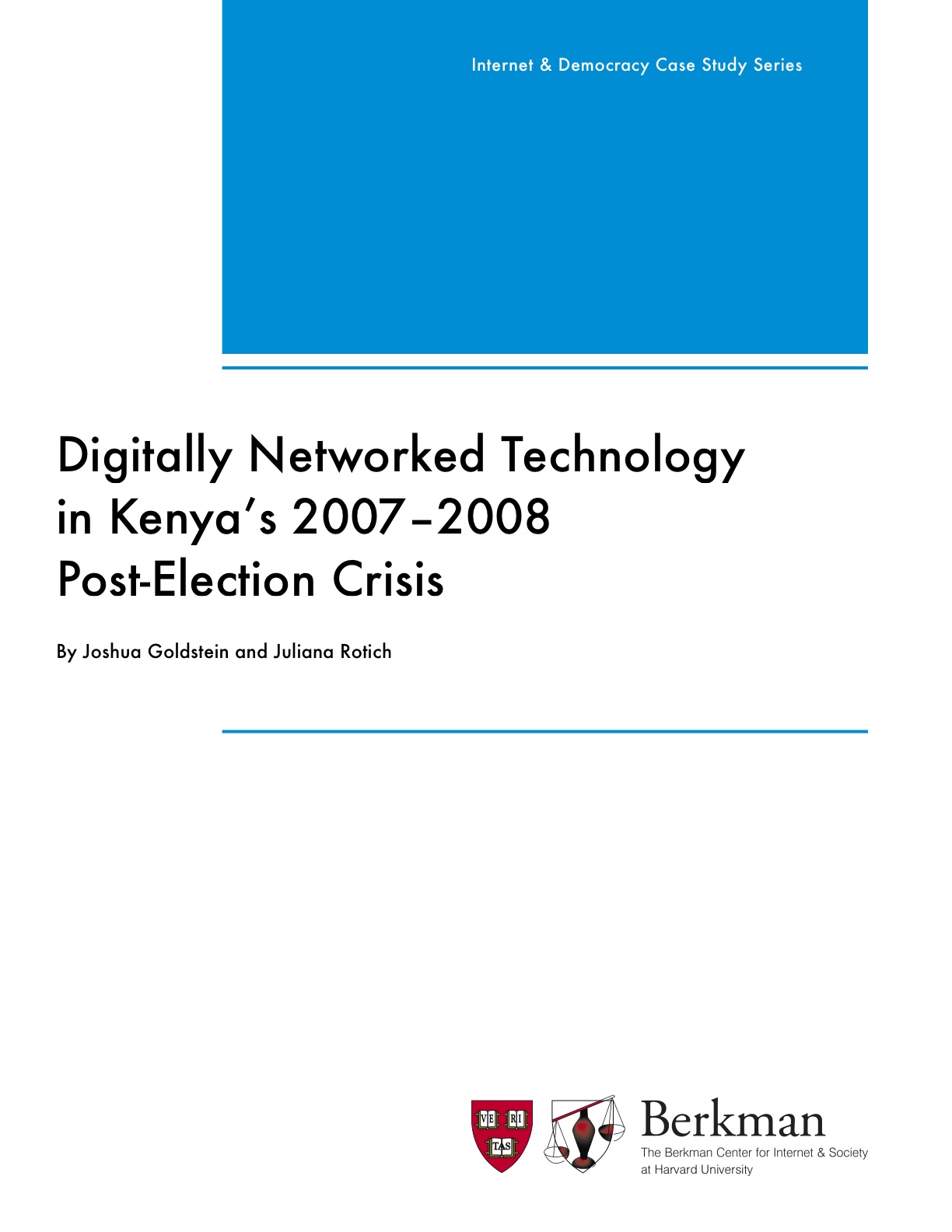I&D Project Releases Case Study of Post-Election Crisis In Kenya
September 30th, 2008 — Tim HwangWe’re following up yesterday’s release of our Burma case study with a look at Africa and the role of technology in Kenya’s post-election violence. This case study builds off of the work of Joshua Goldstein and Juliana Rotich, examining how last year’s post-election domestic conflict in Kenya was both exacerbated and mitigated by the networked public sphere.
In doing so, their effort is to broaden the existing scope of research on how technology is making its impact felt in political action even within the developing world. They write:
Written largely through the lens of rich nations, scholars have developed theories about how digital technology affects democracy. However, largely due to a paucity of evidence, these theories have excluded the experience of Sub-Saharan Africa, where meaningful access to digital tools is only beginning to emerge, but where the struggles between failed state and functioning democracy are profound.
The entire report is available on our site here.
It’s a great piece: Joshua and Juliana have put together a very nuanced examination of the situation, and it goes a long way in bringing out the complexities of the ways in which networked technologies function in times of turmoil.







 Click Here
Click Here
October 6th, 2008 at 10:07 am
Tobias Eigen from Kabissa.org posts this reaction to the Kenya case (also posted on inanAfricanminute):
I woke up to this announcement in my inbox, forwarded through the incom (see http://incommunicado.info) mailing list, and was just about to post it on Kabissa where I saw that you had already posted it! I think this is an important topic that all of us interested in ICT in Africa should be paying attention to, and I’m glad the Berkman center has published this report.
I question the phrase in the blurb you quoted about “meaningful access to digital tools only beginning to emerge” – that’s simply not true. People and organisations have been using ICT meaningfully in Africa for decades. But it is true that, thanks to the spread of mobile telephony and the social web, more people than ever are using ICT on the popular level – everyday wananchi on the street – and this is causing exciting new things to happen. We definitely saw this in Kenya in January and it was exhilarating – and not a little scary – beyond belief.
This is a different ballgame altogether from the way organisations use the Internet traditionally as an enhanced fax machine, research tool and online brochure for promoting their own work to potential donors, partners and other stakeholders around the world.
Would welcome more reactions from others – what are the lessons from Kenya?
Cheers,
Tobias
October 6th, 2008 at 10:29 am
Thanks Tobias:
You are certainly right about your characterization of tech use in Africa. There are some great stories about early adoption in places like Ghana and elsewhere in the 1990’s. This paper is but a starting point in understanding- as you rightly put it- how wanachi use technology will change things.
I’ve followed your site for some time now, and looking forward to seeing how these develop.
josh
October 24th, 2008 at 7:34 pm
Thank you for your Project release.
December 7th, 2008 at 6:35 am
Great piece of writing. The more Internet turns to Satellite, the better for Africa.
June 18th, 2009 at 2:05 pm
I just wanted to say thank you for such a great post. I’ll be visiting your blog again and adding you to my reader ! Thank you again 🙂
Thanks,
Denise